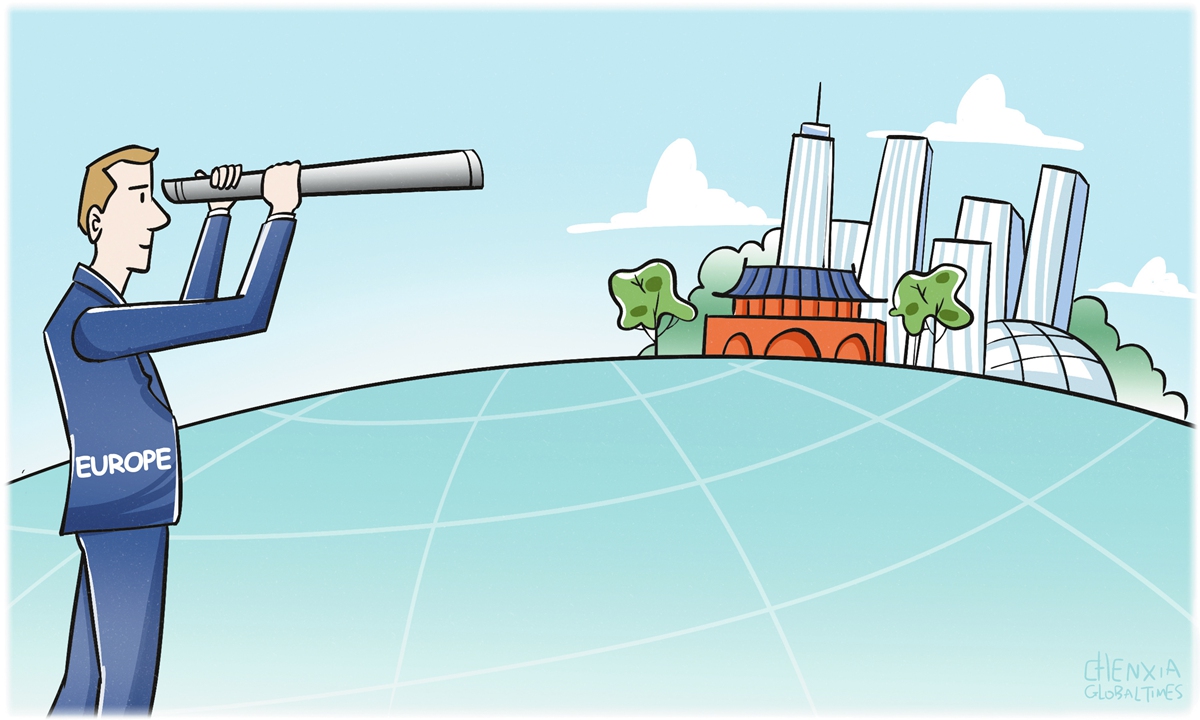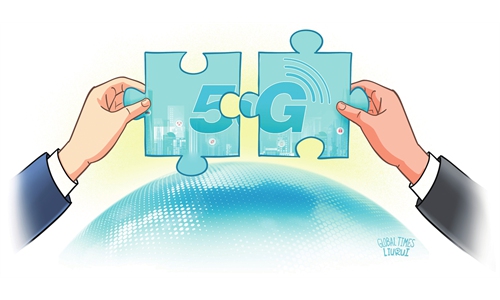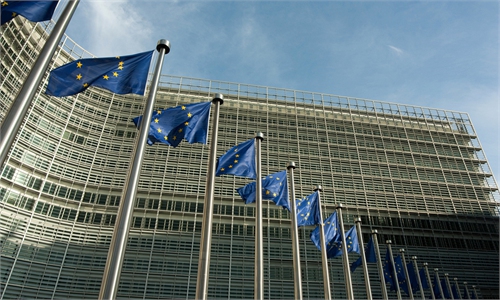
Illustration: Chen Xia/GT
China has recently welcomed a series of visits from European officials. Following the visit of Italy's Senate President Ignazio La Russa from Sunday to Thursday, Chinese Foreign Minister Wang Yi held the second China-Portugal strategic dialogue at the foreign ministers' level with Portugal's Minister of State and Foreign Affairs Paulo Rangel in Beijing on Tuesday. According to foreign media reports, Spanish Prime Minister Pedro Sanchez, EU Trade Commissioner Maros Sefcovic and French Foreign Minister Jean-Noel Barrot are also scheduled to visit China soon. Amid the subtle shifts in the transatlantic alliance, Europe's interest in improving relations with China is on the rise.Currently, the global political and economic landscape is undergoing profound changes. As the US no longer positions itself as the guardian of globalization and the rules-based order, but rather increasingly leans toward unilateralism and protectionism, Europe's role in the transatlantic alliance has become more delicate. Faced with the uncertainty brought by the new US administration, European countries have had to reassess how to safeguard their own interests while balancing their relations with both the US and China.
"There is a growing trend in Europe where countries like Portugal, Spain and Hungary, traditionally more pragmatic toward China, are increasingly exploring deeper ties with China," an anonymous international relations expert told the Global Times.
In early March, a European Parliament spokesperson confirmed that the European Parliament lifted restrictions on lawmakers meeting some Chinese officials, which has been seen as a sign of the thawing of China-EU relations. The development of China-EU relations holds irreplaceable strategic significance for Europe's stability, development and prosperity. As some European officials have emphasized, regardless of any differences between China and Europe, there is a common denominator, which is the commitment to peace.
As comprehensive strategic partners, China and Europe have a broad range of shared interests. China and the EU are each other's second-largest trading partners, with nearly $1.5 million in trade occurring every minute. At present, China is committed to high-quality development and expanding high-level opening-up, presenting new opportunities for China-EU cooperation. Facing the realities of economic slowdown, rising inflation pressures and urgent industrial upgrading needs, Europe is increasingly aware that establishing a mutually beneficial and complementary economic cooperation relationship with China is not only advantageous for both peoples but also injects strong momentum into global economic growth.
As the uncertainty of US policy increases, China, as a major global power, is becoming increasingly prominent for its stability and reliability. Despite the challenges in China-EU relations in recent years, China has consistently maintained its policy toward Europe, repeatedly emphasizing its willingness to strengthen cooperation with Europe, support multilateralism, and promote healthy global development.
For Europe, strategic autonomy is becoming increasingly important. Amid deepening cracks in the Atlantic community and intensifying global competition, Europe needs to seek a more balanced diplomatic approach. A more rational and calm China-EU relationship would not only contribute to stabilizing Europe's economy but also enhance Europe's independence in global affairs. The future of China-EU relations depends on the joint efforts of both sides. Facing a rapidly changing international landscape, Europe should adopt a pragmatic approach and develop its relations with China in a more balanced way, making a rational choice to turn further toward China.


